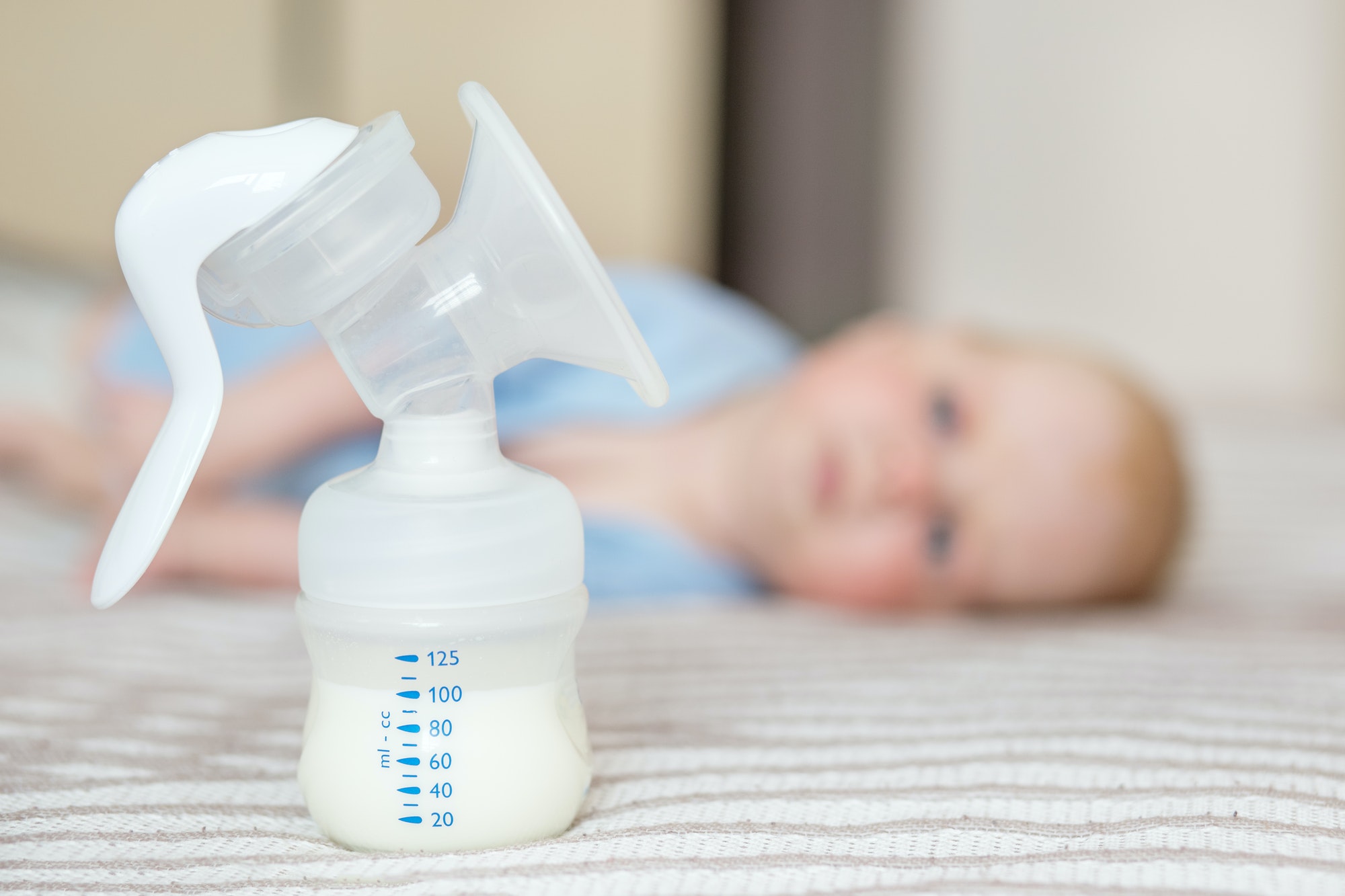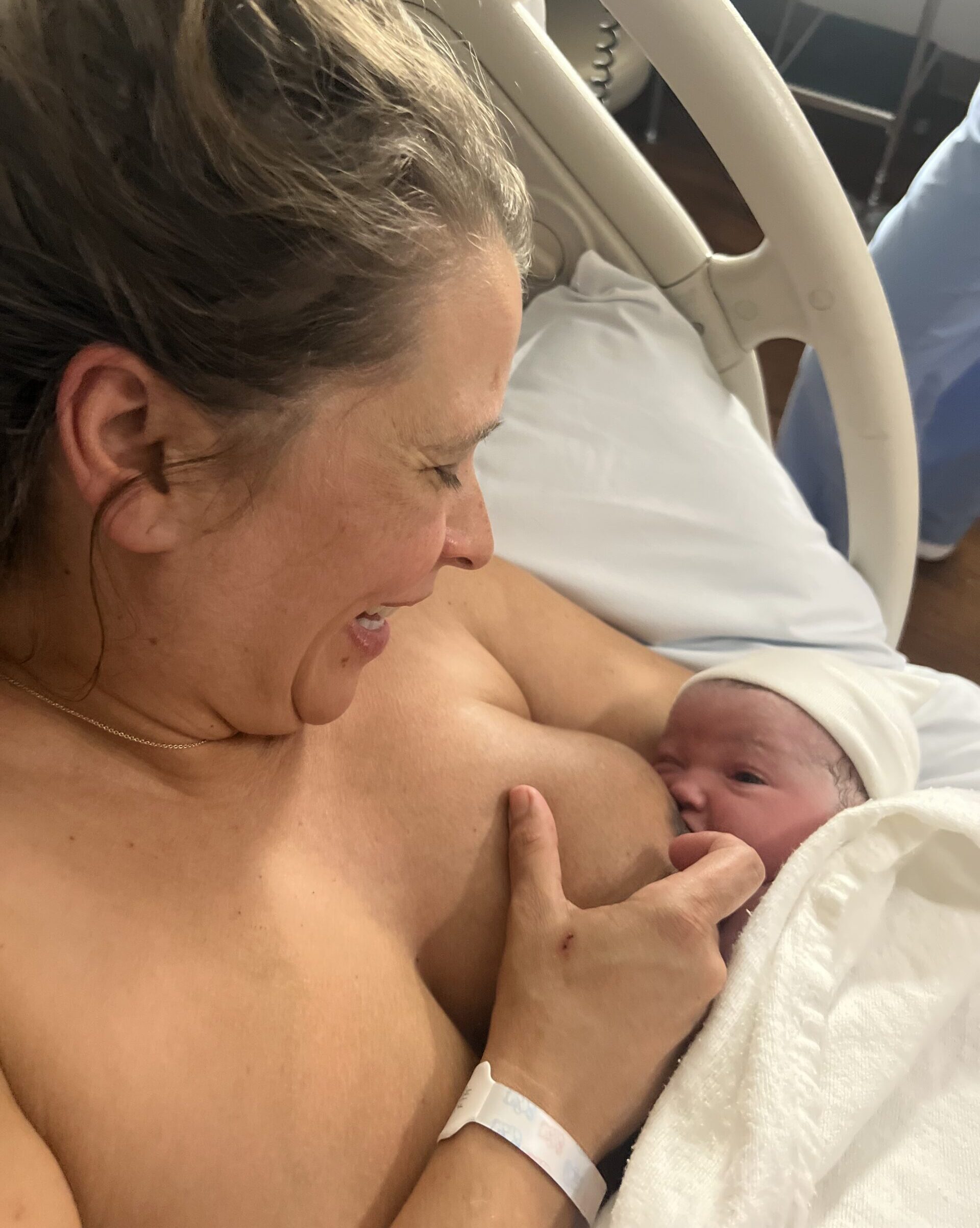A bill that would have extended breastfeeding protections at work to at least 9 million nursing parents during an ongoing formula shortage has failed to pass the U.S. Senate.
The formula shortage helped revive conversations around more breastfeeding support for parents, especially low-income people who are more likely to turn to formula because they work in jobs where they cannot safely pump and store milk, or which offer little or no paid parental leave — but it ultimately wasn’t enough to pass the PUMP for Nursing Mothers Act. The bill had been sitting in the Senate for more than a year and passed the House in October.
The PUMP Act failed to pass via unanimous consent Wednesday evening after being introduced by Democratic Sen. Jeff Merkley of Oregon, who helped pass similar legislation in 2010 and has been pushing since then for a more expansive law that covers more parents.
The bill would have closed a loophole first created when the Break Time for Nursing Mothers Law was passed in 2010. Because that law was signed as part of the Fair Labor Standards Act, it adopted some of the same exceptions in that law, which largely covers only hourly workers. As a result, the Break Time for Nursing Mothers Law left out employees in several salaried and professional occupations, including teachers and some nurses. About 9 million working women of childbearing age fall into that category, as well as an additional 3.7 million salaried workers who earn above the law’s salary threshold but whose job duties mean they should be eligible under the law, according to an analysis by the Economic Policy Institute, a left-leaning think tank. The analysis studied only women, not all people who can become pregnant.
The bill would have closed a loophole first created when the Break Time for Nursing Mothers Law was passed in 2010.
The PUMP Act would also have clarified that any time spent pumping while an employee is also working must be paid and ensured that nursing parents can access the same remedies available to other workers under the Fair Labor Standards Act in the case that their employer does not provide the required accommodations, such as opportunities for back pay and reinstatement if a worker lost their job as a result.
Republican Sen. Cynthia Lummis, of Wyoming, objected to the bill, arguing that it would be particularly burdensome for companies in the transportation industry to create separate accommodations for breastfeeding parents, something that could further hurt the supply chain.
Merkley said on the Senate floor Wednesday evening that the bill had been structured to address the needs of diverse industries, and that the railroad industry Lummis cited hadn’t expressed concerns.
“We have solved this problem in much more difficult situations — I’m very disappointed that today, because of my colleague from Wyoming’s objection, the women, the mothers, the babies and the families lose,” Merkley said.
Another bill, Republican Sen. Mike Lee’s FORMULA Act, also failed to pass via unanimous consent. The bill would have waived tariffs, regulations and quotas on imported formula and soften formula rules around WIC, the program for low-income women and children. Currently, families on WIC can only purchase formula from the single manufacturer their state contracts with. Lee’s bill would have allowed WIC families to purchase from any formula company, but the bill was blocked over safety concerns around relaxing regulations.
The formula shortage that has wiped out most of the stock on shelves nationwide for months is now likely to continue for several more: The Abbott Nutrition formula plant in Michigan, which set off the shortage after it closed in February, had to once again close after flooding from a severe storm in June. That will likely lead to weeks of delays even as the Biden administration works to continue importing formula. In some states, as little as 10 percent of their usual formula stock is currently on store shelves.
The PUMP Act’s failure to pass as the formula shortage continues was a blow to advocates, who saw a pathway to passage this year.
“We know all senators agree that no one should have to choose between providing nutrition for their children and their job. We are confident today’s disappointing vote is not the end of the effort to support breastfeeding workers,” said Sarah Brafman, senior policy counsel and the director of A Better Balance’s D.C. office, the lead advocacy organization pushing for the PUMP Act. “We will continue to work to pass the PUMP for Nursing Mothers Act and the Pregnant Workers Fairness Act, another bipartisan bill that is ready for a vote and will also provide critical lactation accommodations.”
The Pregnant Workers Fairness Act, which has been sitting in the Senate since the House passed it in May 2021 and would provide another opportunity to strengthen protections for nursing parents, does appear poised to pass soon. Senators reintroduced it last week and it has strong bipartisan support, led by Democratic Sens. Patty Murray and Bob Casey and Republican Sens. Bill Cassidy and Richard Burr. Business groups, including the U.S. Chamber of Commerce, have also supported the bill because it would clarify expectations for employers.
The Pregnant Workers Fairness Act would close loopholes, clarify language and strengthen protections first outlined in the 1978 Pregnancy Discrimination Act. Specifically, workers would no longer have to be the ones to prove they need accommodations by showing that their employer had provided an accommodation for someone else who was similarly situated. That loophole has made it difficult for workers to bring cases forward, rendering some of the key provisions of the initial law moot because pregnancy often doesn’t have comparison points across other accommodations.
Putting the burden of proof on employees poses particular challenges for low-income workers of color, who predominantly work in positions with little flexibility that are often more physically demanding, and who lack the resources and support to pursue cases against their employers. About two-thirds of pregnant workers have lost their pregnancy accommodation cases since 2015, according to A Better Balance.
The Pregnant Workers Fairness Act also extends its reasonable accommodations requirements to workers facing limitations related to childbirth and other related medical conditions, including breastfeeding. People who need accommodations for lactation, such as a change in uniform or temporary light duty, would also be protected by the bill.
“The crisis has allowed for more of an understanding and a conversation about the importance of making sure that parents are supported and that there are systemic supports and that we’re not waiting for a crisis, that those base supports are in place long beforehand,” said Elizabeth Gedmark, the vice president of A Better Balance.
If passed, the Pregnant Workers Fairness Act would have to go back to the House for another vote, but it is expected to also pass that chamber.
Casey, who has been advocating for the bill for a decade, said in a statement to The 19th that he is “fighting to bring it to the Senate floor as soon as possible.”
Murray said she sees the two bills — Pregnant Workers and PUMP — as “common-sense policy” that should have been law before the shortage hit.
“We’re talking about basic protections like ensuring pregnant women have a stool or a water bottle so they can stay on the job, or that all nursing moms have the time and space they need to pump,” Murray said. “We’ve been fighting for years to get these bills across the finish line. …With reproductive rights under attack — and with a formula crisis still putting stress on parents’ shoulders — the very last thing anyone should have to worry about is losing their job because they’re pregnant or nursing.”
Since the formula shortage began, calls have come in to A Better Balance’s hotline for workers who have questions about their rights, with many asking what kind of protections they could tap into if they decide to breastfeed while the shortage continues.
To be able to breastfeed effectively, workers need access to a clean, private space, refrigeration — and, most of all, time. The American Academy of Pediatrics recommends parents breastfeed their children for the first six months of their lives, which makes breastfeeding impossible for some parents working low-income jobs with few benefits. About half of all formula purchases in the United States are by parents on WIC. A study published in 2019 of Latinx people on WIC found that returning to work or school was one of the most common reasons people cited for choosing to formula feed, only behind not having a sufficient milk supply.
To be able to breastfeed effectively, workers need access to a clean, private space, refrigeration — and, most of all, time.
Amanda, a Better Balance community advocate who works in the medical field in Louisiana, has been in a dispute with her employer for months to try to establish reasonable accommodations so she can breastfeed her 5-month-old son. (The 19th is withholding her last name so she may speak freely about her employment situation.)
In recent months, she’s had to supplement her milk supply with formula while continuing to pump, but she lives about 2 hours from her job. The position was remote until the start of this year, when her employer required everyone to return to the office in person.
Her commute and the formula shortage have collided to make pumping both more difficult and more needed. Because of the frequency with which she needs to pump, Amanda has found herself driving with a bag of milk held up to the air conditioner in her car so it doesn’t spoil.
Her employer has tried to help — they’ve offered a space and refrigeration for her once she gets to the office, and are allowing her to now come in person twice a week on a temporarily truncated schedule, but even that is a challenge. On a normal day, she wakes up at 5:30 a.m., pumps for half an hour and then heads out. She’s at work from 9 a.m. to about noon and rushes home to breastfeed as soon as she arrives. She works from home the rest of the time.
She and her husband are trying to breastfeed and pump as much as they can, worried they won’t see formula on the shelves for months. Most of the cans they’ve been able to secure have been through family in other states.
“I’m literally terrified to stop breastfeeding and dry up and have my son 100 percent on the formula, because I don’t know if this stock is going to come in, if whatever does come back in is going to come in will be enough,” Amanda said.
Working in person is also made more difficult by the fact that no daycares in her area will take her son amidst an ongoing shortage of child care providers and spots. She has called 30 daycares and is on seven waitlists for spots that won’t open for months. An at-home provider who was going to take her son when he turns 6 months fell through.
The stress has taken a physical toll: Amanda said she suffers from dizzy spells almost daily, as well as lower stomach pain. She is seeing a psychiatrist, a counselor and an ear, nose and throat doctor, who has now referred her to a physical therapist.
Her employer has said that if she can’t find a solution, they may have to fire her. Meanwhile, Amanda has started to look for jobs that are strictly remote.
Her situation, she said, is a clear example of the ways the current law fails workers. The protections it provides have no teeth, and don’t address workers’ true concerns, particularly now as the shortages have intensified the need for flexibility.
Even for employers like hers, that are “doing everything they can that the law allows them to do,” it’s not enough, Amanda said. “The accommodations they are offering are not beneficial to my situation.”
This article was first published here. Read can read the original article in full here.


















